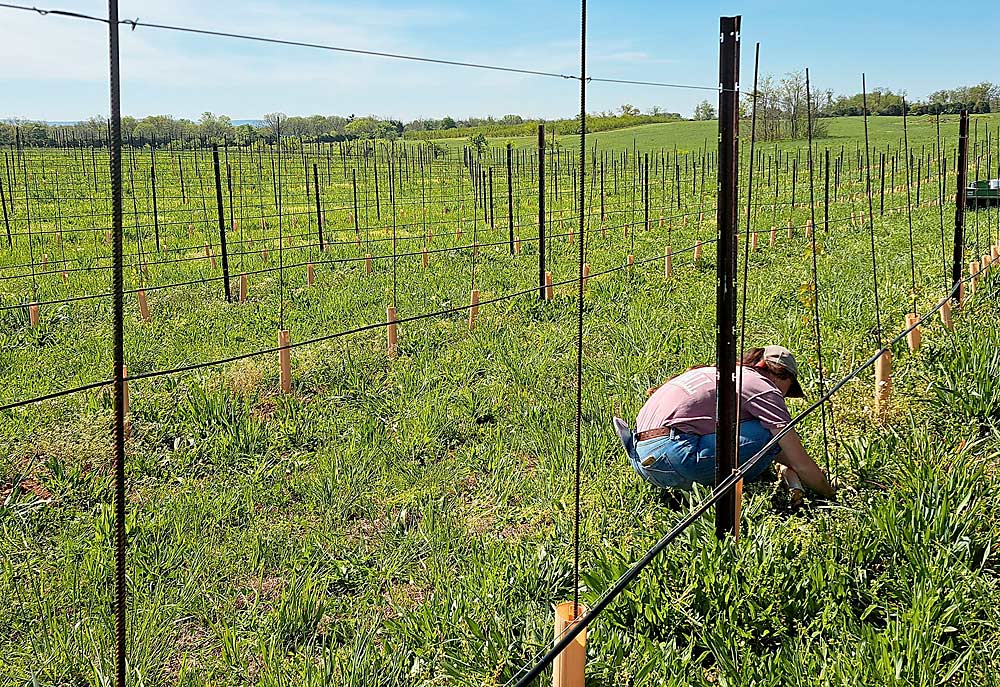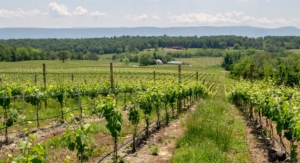—by Matt Milkovich

Virginia vineyardists want to grow wine grapes that can thrive in their humid climate. More specifically, they want grapes with Vitis vinifera-like wine characteristics that are also resistant to downy mildew, black rot and other diseases.
Virginia growers weren’t finding grapes like that in existing breeding programs, so they decided to partner with the U.S. Department of Agriculture to start one of their own. They now have a facility, a breeder and other necessities in place, and they hope to start making releases in the next decade or two.
“It’s a participatory, grower-driven program,” said the breeder, Surya Sapkota. “The primary target is disease resistance.”
The breeding program is based at the USDA Agricultural Research Service’s Appalachian Fruit Research Station in Kearneysville, West Virginia. Since he started in 2022, Sapkota has been busy making crosses, planting seedlings and creating a new research vineyard at the facility. A board made up of growers, winemakers and researchers helps him guide the program’s activities and direction, he said.
The program’s broad goal is to release grapes that can thrive anywhere in the Mid-Atlantic region, but the Virginia wine industry pushed for its creation. Two people in particular, Ben Jordan of Common Wealth Crush Co. and Emily Hodson of Veritas Vineyards and Winery, led the effort. Financial support comes from the Virginia Wine Board, which promotes the state’s wine industry.
As a grower and winemaker, Jordan loves the wines he can make with traditional vinifera varieties, but they require constant spraying for disease protection, and even the slightest oversight can lead to major downy mildew problems. Resistant varieties with comparable quality would lower the risks, he said.
Wanting to take advantage of new genetic tools that can speed up fruit breeding, Jordan and Hodson sought a partner that could provide the expertise and infrastructure needed to start a breeding program from scratch. They found a practical partner in the USDA.
“There’s no recipe for how these things are built,” said USDA research plant pathologist Lance Cadle-Davidson. “This was a perfect alignment of our research interests and their needs.”
Cadle-Davidson is based in Geneva, New York, where he leads USDA’s research program on grape genetics for managing fungal diseases. When Jordan and Hodson approached him about the potential of creating a Mid-Atlantic grape breeding program, he thought the research station in West Virginia would make an ideal location.
Cadle-Davidson also had a grape breeder in mind. He’d already hired Sapkota as a postdoctoral researcher, and he thought Sapkota’s background in disease resistance, genetics and pathology would make him a perfect fit for the new breeding program.
“He had the skills to hit the ground running,” Cadle-Davidson said.
Cadle-Davidson said the program aims to make its first release within 15 years. •








Leave A Comment